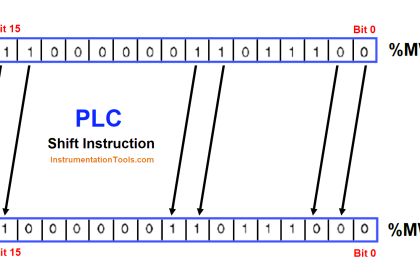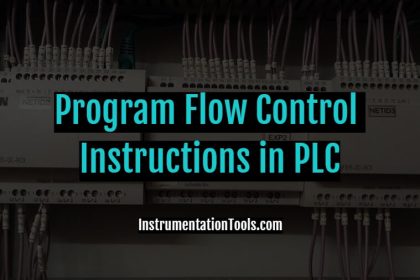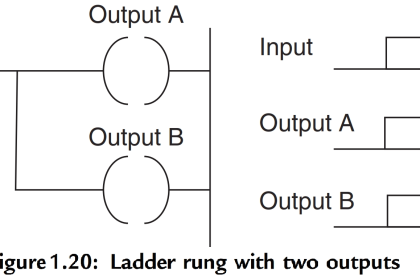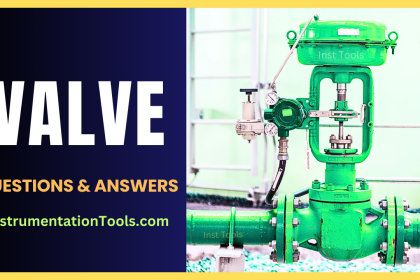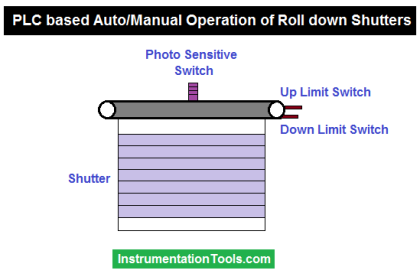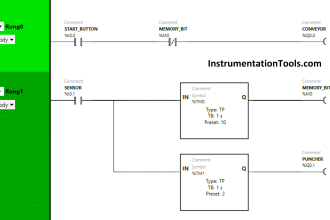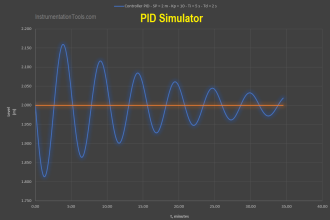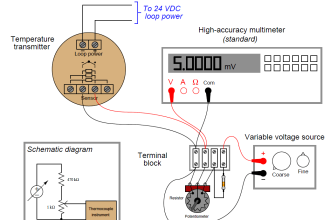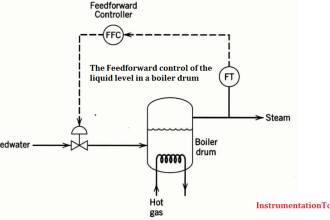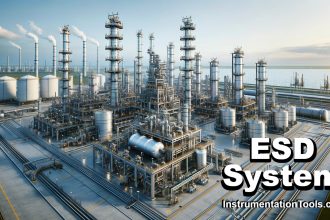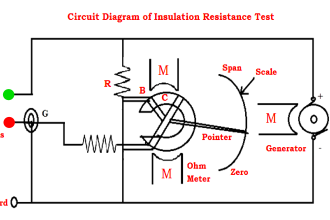Learn critical questions and answers about intrinsically safe barriers to ensure safe operations in hazardous locations.
Intrinsically Safe Barriers
The below video provides the detailed explanations for the intrinsic safe related questions in the control systems.
Question 1
What is a safety barrier in the PLC systems?
A. A component that increases voltage for signals
B. A device that limits energy to prevent hazards
C. A tool used to enhance PLC programming
D. A sensor used for detecting system faults
Show the Answer
A device that limits energy to prevent hazards
Question 2
What is the primary purpose of a barrier in a PLC system?
A. To provide electrical isolation
B. To reduce power consumption
C. To prevent overloading
D. To ensure consistent signal strength
Show the Answer
To provide electrical isolation
Question 3
How does a Zener barrier function in a PLC system?
A. By providing current amplification
B. By regulating voltage
C. By enhancing signal frequency
D. By clamping voltage to a safe level
Show the Answer
By clamping voltage to a safe level
Question 4
In which type of area is an intrinsic safety barrier most critical in a PLC?
A. Utility areas
B. Hazardous areas
C. Offsite areas
D. Non-hazardous areas
Show the Answer
Hazardous areas
Question 5
What is a key difference between a Zener barrier and a galvanic isolator in a PLC system?
A. Galvanic isolator increases signal strength
B. Zener barrier enhances current flow
C. Zener barrier isolates through a diode, galvanic uses a transformer
D. Galvanic barrier isolates through a diode, zener uses a transformer
Show the Answer
Zener barrier isolates through a diode, galvanic uses a transformer
Question 6
What is the main advantage of a galvanic isolator over a Zener barrier?
A. Simpler design
B. Cheaper cost
C. No need for grounding
D. Higher current capacity
Show the Answer
No need for grounding
Question 7
What is the primary difference between a passive and an active safety barrier in a PLC system?
A. Passive barriers use transformers
B. Active barriers require external power
C. Active barriers increase voltage levels
D. Passive barriers amplify signals
Show the Answer
Active barriers require external power
Question 8
Which standard typically governs the use of intrinsic safety barriers in PLC systems?
A. ISO 9001
B. IEC 60079
C. IEEE 802.3
D. IEC 61508
Show the Answer
IEC 60079
Question 9
What is a key consideration when installing a safety barrier in a PLC system within an explosive environment?
A. Reducing system redundancy
B. Ensuring proper grounding and bonding
C. Maximizing data transmission speed
D. Minimizing installation time
Show the Answer
Ensuring proper grounding and bonding
Question 10
In a PLC system, why might you choose to use an intrinsic safety barrier instead of a standard fuse?
A. To simplify the circuit design
B. For higher current tolerance
C. To prevent ignition in hazardous areas
D. To save space
Show the Answer
To prevent ignition in hazardous areas
Question 11
How does a barrier ensure the safety of both personnel and equipment in a PLC system?
A. By boosting signals
B. By increasing power
C. By filtering noise
D. By limiting energy transfer
Show the Answer
By limiting energy transfer
Question 12
What happens if a Zener barrier in a PLC system is not properly grounded?
A. The system operates normally
B. The barrier fails to protect the hazardous area
C. The barrier reduces signal strength
D. It enhances the circuit’s performance
Show the Answer
The barrier fails to protect the hazardous area
Question 13
What key factor must be considered when selecting a Zener barrier for a PLC system?
A. Signal frequency
B. Voltage rating
C. Color coding
D. Physical size
Show the Answer
Voltage rating
Question 14
What is a typical application of galvanic isolators in PLC systems?
A. Boosting power in circuits
B. Protecting against power surges
C. Isolating control signals in hazardous environments
D. Enhancing data transmission speed
Show the Answer
Isolating control signals in hazardous environments
Question 15
Which of the following describes a limitation of intrinsic safety barriers?
A. They cannot be used in non-hazardous areas
B. They increase the power in a circuit
C. They are ineffective in preventing noise interference
D. They limit the amount of energy in a circuit
Show the Answer
They limit the amount of energy in a circuit
Question 16
Why might an intrinsically safe PLC system require certification?
A. To improve system speed
B. To enhance energy efficiency
C. To ensure compliance with safety regulations
D. To reduce maintenance costs
Show the Answer
To ensure compliance with safety regulations
Question 17
How does the grounding of a Zener barrier affect its operation in a PLC system?
A. It improves the speed of data transmission
B. It reduces the power consumption of the system
C. It allows excess voltage to be safely discharged
D. It increases the barrier’s signal strength
Show the Answer
It allows excess voltage to be safely discharged
Question 18
What is the main reason for using barriers in PLC systems within hazardous environments?
A. To reduce the system’s energy consumption
B. To prevent the ignition of explosive materials
C. To enhance signal processing
D. To improve system reliability
Show the Answer
To prevent the ignition of explosive materials
Question 19
Which of the following is NOT a typical feature of an intrinsic safety barrier?
A. Amplifying signals
B. Regulating voltage
C. Providing fault protection
D. Limiting current
Show the Answer
Amplifying signals
Question 20
Which environment would most likely NOT require the use of a safety barrier in a PLC system?
A. Chemical plants
B. Gas plants
C. Oil refineries
D. Residential automation
Show the Answer
Residential automation
Question 21
What is the role of a resistor in a Zener barrier within a PLC system?
A. To boost voltage levels
B. To limit current flow
C. To amplify the signal
D. To enhance communication speed
Show the Answer
To limit current flow
Question 22
In a PLC system, what might happen if a Zener diode in a Zener barrier fails?
A. Current flow is enhanced
B. Overvoltage protection is lost
C. Signal strength increases
D. The circuit is shorted and current flow will be stopped
Show the Answer
Overvoltage protection is lost
Question 23
What could be a consequence of installing a barrier with an incorrect voltage rating in a PLC system?
A. Enhanced data accuracy
B. Potential failure to protect against overvoltage
C. Increased communication speed
D. Improved system efficiency
Show the Answer
Potential failure to protect against overvoltage
Question 24
Which type of barrier would be most suitable for a PLC system in a highly corrosive environment?
A. Zener barrier
B. Optical isolator
C. Intrinsic safety barrier
D. Galvanic isolator
Show the Answer
Galvanic isolator
Question 25
How does an optical isolator differ from a Zener barrier in a PLC system?
A. It enhances current flow
B. It uses light for signal transmission
C. It requires a ground connection
D. It uses Zener diode for signal transmission
Show the Answer
It uses light for signal transmission
Question 26
In what scenario is the use of a galvanic isolator preferred over a Zener barrier in a PLC system?
A. When space is limited
B. When there is significant electrical noise
C. When high current flow is required
D. When cost is the primary concern
Show the Answer
When there is significant electrical noise
Question 27
What is a common characteristic of all intrinsic safety barriers used in PLC systems?
A. They require no maintenance
B. They increase system power
C. They amplify control signals
D. They limit energy in circuits
Show the Answer
They limit energy in circuits
Question 28
What is the primary function of a current-limiting resistor in an intrinsic safety barrier?
A. To reduce power consumption
B. To boost signal clarity
C. To prevent excessive current flow
D. To regulate voltage levels
Show the Answer
To prevent excessive current flow
Question 29
Why are optical isolators considered highly reliable in PLC systems?
A. They enhance system speed
B. They require no power source
C. They increase current flow
D. They are immune to electromagnetic interference
Show the Answer
They are immune to electromagnetic interference
Question 30
How does a Zener barrier protect a PLC system during a fault condition?
A. By amplifying the signal
B. By diverting excess energy to ground
C. By disconnecting the circuit
D. By increasing voltage
Show the Answer
By diverting excess energy to ground
Question 31
Which factor is crucial when installing a Zener barrier in a hazardous area?
A. Color coding
B. Proximity to other equipment
C. Correct grounding
D. Operating temperature
Show the Answer
Correct grounding
Question 32
What is a characteristic of an active barrier in a PLC system?
A. It enhances energy flow
B. It requires external power to operate
C. It simplifies circuit connections
D. It passively reduces current
Show the Answer
It requires external power to operate
Question 33
How does a passive barrier function in a PLC system?
A. It increases signal speed
B. It amplifies signals
C. It requires external power to operate
D. It passively limits voltage and current without external power
Show the Answer
It passively limits voltage and current without external power
Question 34
How do isolation amplifiers provide safety in PLC systems?
A. By increasing voltage output
B. By boosting current
C. By reducing power consumption
D. By providing electrical isolation between circuits
Show the Answer
By providing electrical isolation between circuits
Question 35
What is the primary role of surge protection barriers in a PLC system?
A. To reduce current flow
B. To increase signal speed
C. To prevent overvoltage from damaging equipment
D. To isolate circuits
Show the Answer
To prevent overvoltage from damaging equipment
Question 36
In what type of communication system are Fieldbus barriers typically used?
A. Digital fieldbus networks
B. Analog communication
C. Serial communication
D. Wireless communication
Show the Answer
Digital fieldbus networks
Question 37
What is a primary advantage of using Zener barriers in hazardous environments?
A. High signal amplification
B. Simple design and cost-effectiveness
C. Requires no grounding
D. Enhances data speed
Show the Answer
Simple design and cost-effectiveness
Question 38
What is a disadvantage of galvanic isolation barriers compared to Zener barriers?
A. Lower reliability
B. Increased installation complexity and cost
C. Requires constant maintenance
D. Higher susceptibility to noise
Show the Answer
Increased installation complexity and cost
Question 39
What is a disadvantage of surge protection barriers in PLC systems?
A. They do not protect against continuous overvoltage conditions
B. They are less effective in non-hazardous areas
C. They cannot handle high current loads
D. They increase system speed
Show the Answer
They do not protect against continuous overvoltage conditions
Question 40
What is an advantage of Fieldbus barriers in industrial communication systems?
A. They amplify voltage
B. They are immune to electrical noise
C. They simplify wiring and reduce installation costs
D. They increase signal speed
Show the Answer
They simplify wiring and reduce installation costs
Question 41
What is a common mistake when wiring galvanic isolation barriers in PLC systems?
A. Using shielded cables
B. Using too many wires
C. Wiring it in series with power supplies
D. Connecting the ground on both sides of the isolator
Show the Answer
Connecting the ground on both sides of the isolator
Question 42
Why is it important to avoid long cable runs when wiring diode safety barriers?
A. It increases signal clarity
B. It reduces voltage drop
C. It avoids potential capacitance and inductance issues
D. It simplifies installation
Show the Answer
It avoids potential capacitance and inductance issues
Question 43
What should be considered when routing cables for intrinsic safety barriers in hazardous areas?
A. Using the thinnest cables available
B. Keeping them separate from non-IS cables
C. Keeping them separate from IS cables
D. Proximity to high-voltage cables
Show the Answer
Keeping them separate from non-IS cables
Question 44
How should a surge protection barrier be wired in relation to sensitive equipment?
A. Directly into the power source
B. At the far end of the power line
C. In series with the equipment
D. In parallel to the equipment
Show the Answer
In series with the equipment
Read Next:
- Zener Diode Barrier Principle
- Zener Diode Voltage Regulators
- Isolators and Barriers in Electrical Panel
- What is a Signal Isolator? Principle
- Safety Control Circuits – PLC Example
